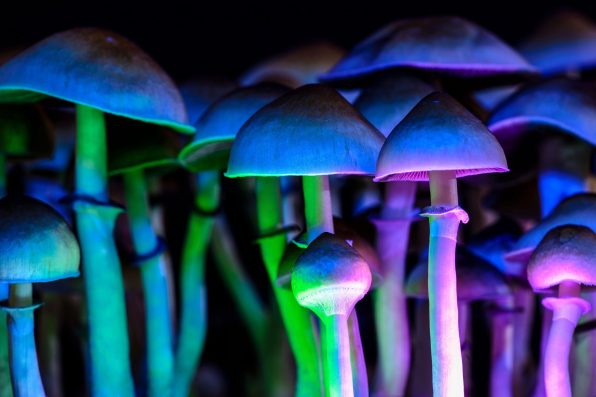Magic Mushrooms Can Scramble Connectivity Patterns In The Brain For Up To Three Weeks, Which May Explain Their Positive Impact On Mental Health Conditions

When “magic mushrooms,” or mushrooms containing psilocybin, are consumed, it creates an experience in which time, space, and sense of self feel altered. A psychedelic trip causes brain activity to become more random and disorganized.
For a while, advocates of psilocybin have argued that psychedelic experiences can bring mental relief when they occur under the right circumstances. A handful of studies have found that the claim may have some truth to it.
Researchers from Washington University School of Medicine in St. Louis have discovered that psilocybin, the active compound in magic mushrooms, can scramble connectivity patterns in brain areas associated with memory and daydreaming, which could explain why psilocybin-based therapies can help alleviate depression and other mental health conditions.
“There’s a massive effect initially, and when it’s gone, a pinpoint effect remains,” Nico U.F. Dosenbach, a co-author of the study and a professor of neurology, said.
“That’s exactly what you’d want to see for a potential medicine. You wouldn’t want people’s brain networks to be obliterated for days, but you also wouldn’t want everything to snap back to the way it was immediately. You want an effect that lasts long enough to make a difference.”
The researchers recruited seven healthy adults to take a high dose of psilocybin or methylphenidate, the generic version of Ritalin. The experiment was conducted under controlled conditions. A pair of trained experts stayed with each participant in case they needed assistance since psychedelic trips have the risk of producing negative or frightening experiences.
In the weeks before, during, and after their experiences with psilocybin, the participants underwent an average of 18 MRI brain scans. When the researchers analyzed the scans, they saw that psilocybin caused profound but non-permanent changes to networks of the brain, particularly the default mode network.
Each person had a unique pattern of network connectivity before they had taken psilocybin. But, immediately after taking psilocybin, connectivity patterns became more chaotic and the participants’ brain scans could not be distinguished from one another. At a neuroscientific level, this finding aligns with people’s claims of losing their sense of self during a trip.
When the acute effects of the drug wore off, their networks re-established themselves, but small differences in their brains lasted for weeks. The default mode networks of the individuals who received methylphenidate remained stable.

Martina – stock.adobe.com – illustrative purposes only
“The idea is that you’re taking this system that’s fundamental to the brain’s ability to think about the self in relation to the world, and you’re totally desynchronizing it temporarily,” said Joshua Siegel, the first author of the study and an instructor in psychiatry.
“In the short term, this creates a psychedelic experience. The longer-term consequence is that it makes the brain more flexible and potentially more able to come into a healthier state.”
Participants were also asked to rate their “feelings of transcendence, connectedness, and awe” using the Mystical Experience Questionnaire during their experiences.
Overall, the results of the study can help psychiatrists better determine what medicines and the precise dosages to give to patients since the current approach is much like a trial-and-error process.
In addition, the study authors noted that people should not self-medicate with psilocybin. Without the guidance of trained experts, you could be subjected to more risks.
The study was published in Nature.
Sign up for Chip Chick’s newsletter and get stories like this delivered to your inbox.
More About:News